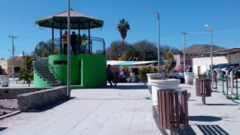As the Vatican prepares for a future conclave, Cardinal Jean-Marc Aveline emerges as a pivotal figure, embodying the potential for a more inclusive and dialogue-first leadership.
Cardinal Aveline: A Unifying Hope for the Papacy

Cardinal Aveline: A Unifying Hope for the Papacy
A closer look at the candidacy of Cardinal Jean-Marc Aveline, known for fostering interfaith dialogue and unity in a divided church.
Cardinal Jean-Marc Aveline, the Archbishop of Marseille, is increasingly being considered as a leading candidate for the next pope, perhaps affectionately nicknamed "John XXIV" due to his resemblance to the beloved Pope John XXIII. This acknowledgment connects the cardinal's vision with a legacy of modernizing the Church. A theologian and editor, Jean-François Colosimo, emphasized Aveline's unique position of balance, describing him as someone who transcends the typical progressive-conservative divide, capable of fostering conversations and bridging gaps while maintaining a strong sense of identity.
At 66, Aveline's new role as head of the French bishops’ conference further highlights his proactive stance on interfaith dialogue, a hallmark of his leadership in the diverse cultural atmosphere of Marseille. This port city, marked by various religious communities and socio-economic challenges, has shaped Aveline's approach to church leadership — one grounded in cooperation and understanding.
Nonetheless, Aveline’s candidacy presents a complex picture. Historically, French candidates have faced skepticism in papal conclaves since the 14th century, when a French pope moved the seat of the papacy to Avignon. Additionally, his lack of familiarity with Vatican dynamics and limited Italian-speaking abilities might hinder his prospects. As noted by Isabelle de Gaulmyn, a former chief editor of La Croix, these factors could present significant obstacles to his ascension.
As discussions about the future of the Church unfold, the cardinal's ability to unite diverse factions while upholding theological integrity will be put to the test in the increasingly complex world of the Vatican.
At 66, Aveline's new role as head of the French bishops’ conference further highlights his proactive stance on interfaith dialogue, a hallmark of his leadership in the diverse cultural atmosphere of Marseille. This port city, marked by various religious communities and socio-economic challenges, has shaped Aveline's approach to church leadership — one grounded in cooperation and understanding.
Nonetheless, Aveline’s candidacy presents a complex picture. Historically, French candidates have faced skepticism in papal conclaves since the 14th century, when a French pope moved the seat of the papacy to Avignon. Additionally, his lack of familiarity with Vatican dynamics and limited Italian-speaking abilities might hinder his prospects. As noted by Isabelle de Gaulmyn, a former chief editor of La Croix, these factors could present significant obstacles to his ascension.
As discussions about the future of the Church unfold, the cardinal's ability to unite diverse factions while upholding theological integrity will be put to the test in the increasingly complex world of the Vatican.




















